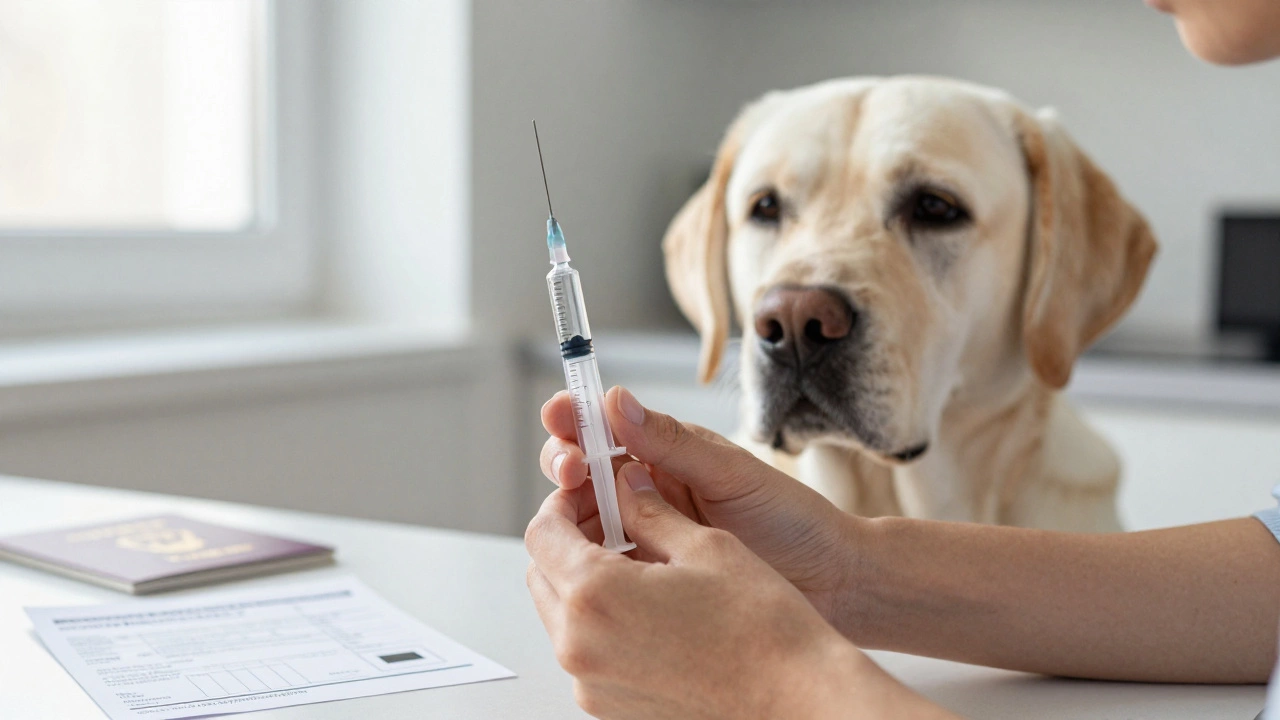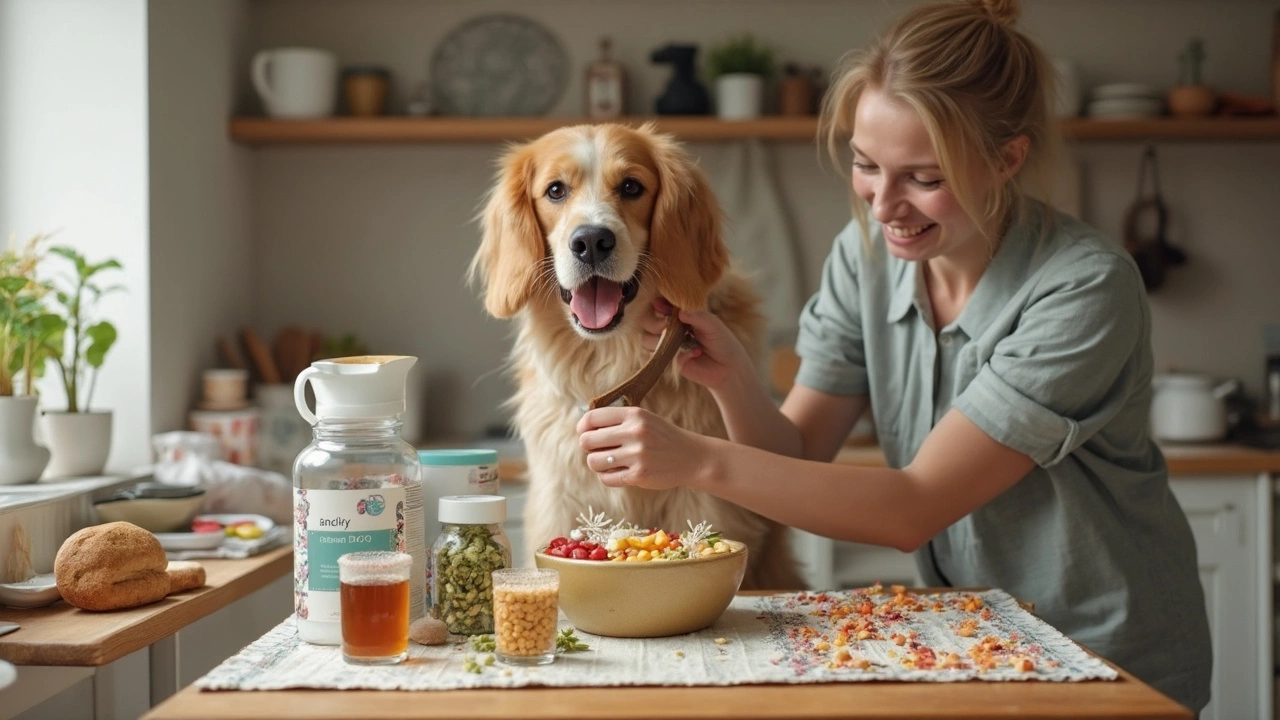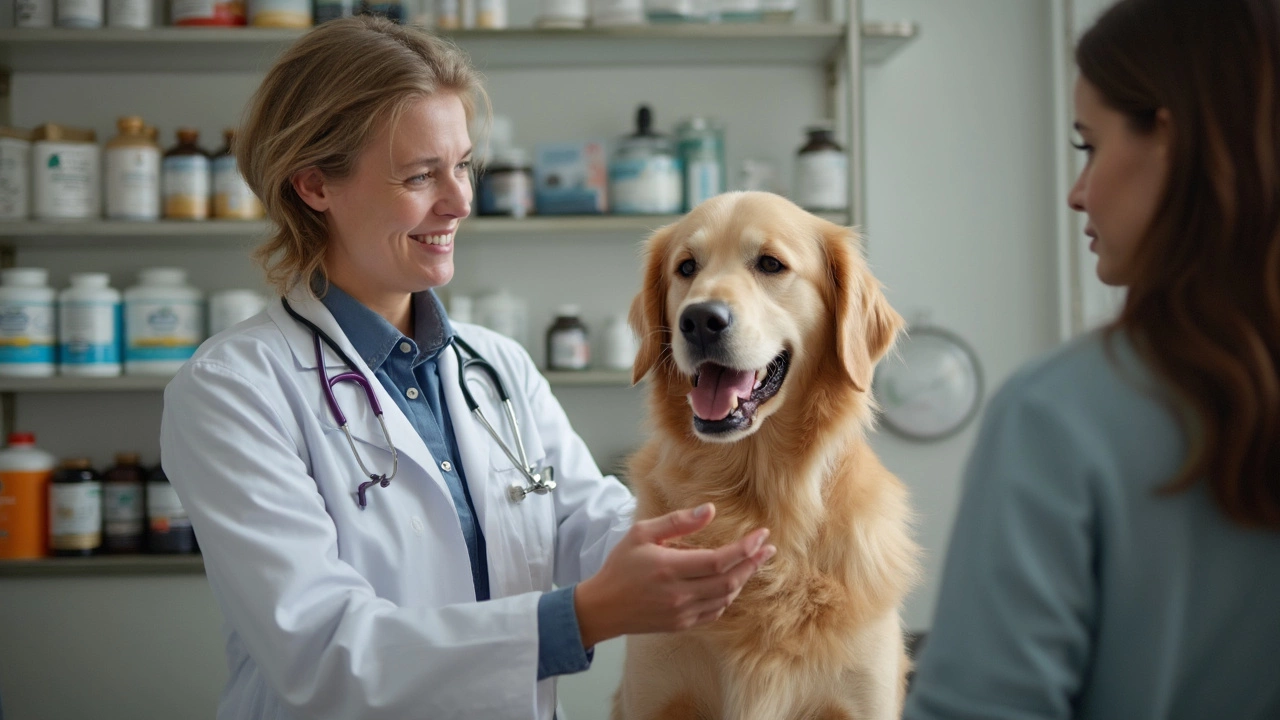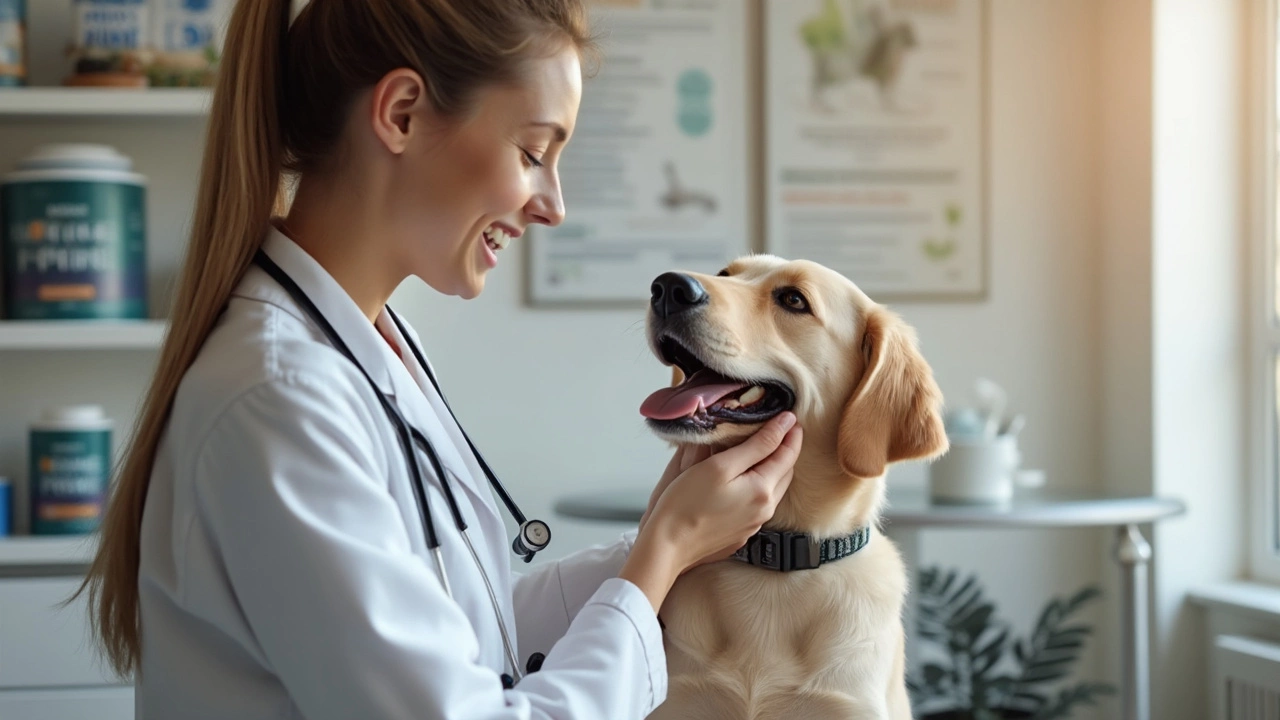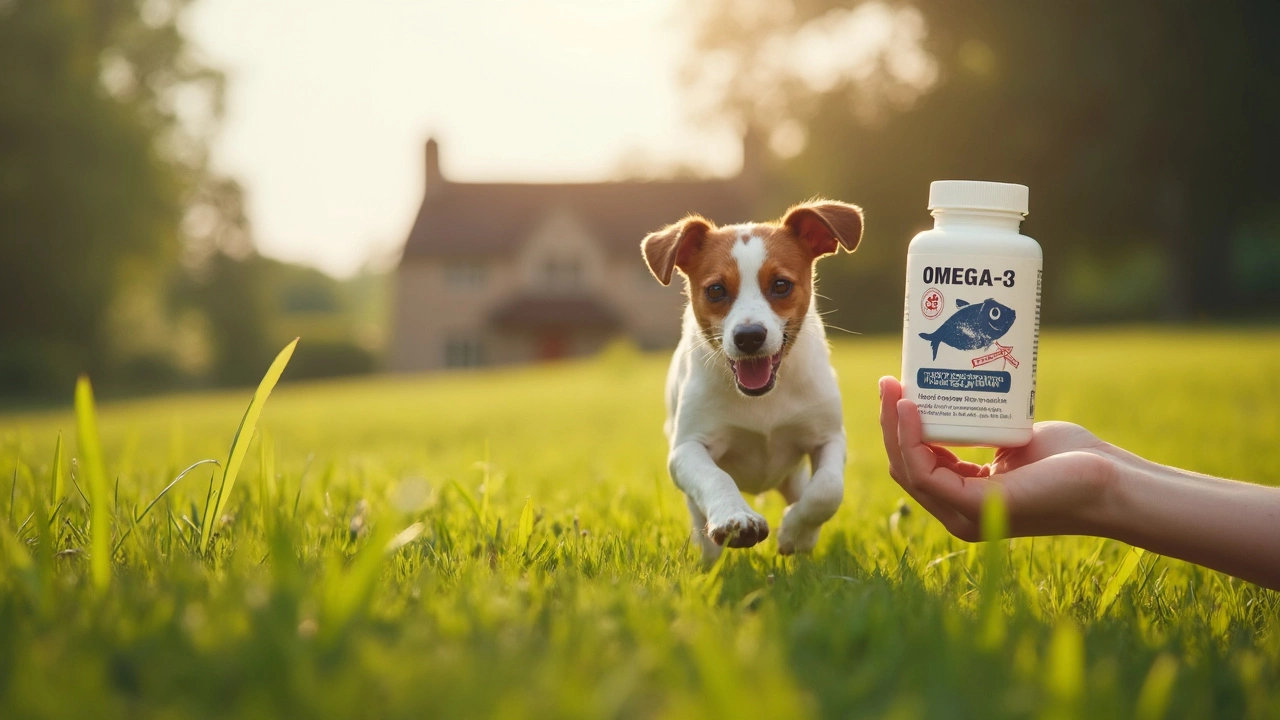Dog Health – Simple Tips, Supplements & Vet Advice
Welcome to the Dog Health hub. Whether you’re a first‑time owner or a seasoned dog parent, you’ll find easy‑to‑use advice that helps you spot problems early and choose the right extras for your pup’s diet.
Every dog is different, but a few basics apply to all. Regular walks, fresh water, and a balanced diet are the foundation. From there, a few focused steps can make a big difference in energy levels, coat shine, and overall happiness.
Common Health Concerns and How to Spot Them
Most owners first notice a change in appetite, energy, or bathroom habits. A loss of interest in food can mean a nutrient gap, while sudden fatigue often points to a deficiency or an underlying condition.
Watch for these red flags:
- Dry, itchy skin or a dull coat – could signal missing omega‑3s or vitamins.
- Excessive scratching or hot spots – may need a probiotic boost.
- Stomach upset, vomiting, or diarrhea – sometimes a sign of low B12 or a gut imbalance.
- Lethargy, stumbling, or muscle tremors – often linked to calcium or Vitamin D shortfalls.
- Frequent grass eating – not always a problem, but it can hint at missing nutrients.
When you see any of these signs, a quick chat with your vet can pinpoint the cause. Many vets will recommend a simple blood test or a diet review before suggesting any supplement.
Smart Supplement Choices for Everyday Care
Supplements work best when they fill a gap, not replace a good diet. Here are the most useful options for everyday health:
- Omega‑3 fish oil – supports skin, coat, and joint health. A small daily dose is enough; too much can cause loose stools.
- Probiotics – keep the gut balanced, which helps with digestion and immune response. Pick a product with multiple strains and a guaranteed CFU count.
- Vitamin B12 – essential for energy and nerve function. Dogs on homemade meals often need it.
- Cod liver oil – adds vitamin A and D plus omega‑3s. Use it a few times a week rather than daily, unless your vet says otherwise.
- Canine Prime or similar multivitamins – great for older dogs or those on limited diets, but check the ingredient list for unnecessary fillers.
Always start with the lowest recommended dose and watch your dog for any changes. If you notice new itching, loose stool, or reduced appetite, cut back and talk to your vet.
Remember, quality matters. Look for supplements made in the UK, third‑party tested, and free of artificial colors or flavors. Cheap off‑brand powders often lack the nutrients they claim.
Beyond supplements, a few lifestyle tweaks can boost health without spending a lot:
- Mix a spoonful of plain, unsweetened yoghurt into meals for a natural probiotic boost.
- Offer a small piece of fresh fruit like blueberries or apple slices for extra antioxidants.
- Rotate protein sources (chicken, beef, fish) to keep the diet varied and reduce the chance of allergies.
And don’t forget regular vet check‑ups. A quick annual exam catches problems before they become serious, saving you time, stress, and money.
Keep this page handy as you shop for food, treats, and supplements. When you know what to look for, you’ll feel confident choosing products that truly support your dog’s health.
Got a question about a specific supplement or a health concern you’ve seen at home? Drop a comment or search the articles below for detailed guides on everything from B12 deficiency to daily cod liver oil use.
Posted By Bryndle Redding On 22 Jan 2026 Comments (0)
Why You Shouldn't Let Dogs Sleep in Your Bed
Letting your dog sleep in your bed might feel loving, but it can hurt your sleep, trigger allergies, and even affect your dog's behavior. Discover the real health risks and better alternatives.
READ MOREPosted By Bryndle Redding On 8 Dec 2025 Comments (0)
Is It Cheaper to Vaccinate Dogs Yourself? The Real Costs and Risks
Vaccinating your dog yourself might seem cheaper, but hidden risks like improper storage, incorrect technique, and legal issues can cost far more. Here's what you really need to know.
READ MOREPosted By Bryndle Redding On 27 Oct 2025 Comments (0)
Why Does My Dog Put His Paw on Me? Dog Behavior Explained
Why does your dog put his paw on you? It's not always about begging. Learn the real reasons behind this common behavior-from affection and anxiety to pain-and how to respond in ways that strengthen your bond.
READ MOREPosted By Bryndle Redding On 17 Oct 2025 Comments (0)
Pumpkin Side Effects in Dogs: What Every Owner Should Know
Learn the safe way to give pumpkin to dogs, spot side effects, and know which pets need extra caution. A practical guide for pet owners.
READ MOREPosted By Bryndle Redding On 10 Jun 2025 Comments (0)
Supplements for Homemade Dog Food: What Your Pup Really Needs
Balancing homemade dog food isn't as easy as tossing together chicken and rice. Dogs have specific nutritional needs that aren't always met with regular human food, so picking the right supplements is critical. Whether you're cooking for a picky eater or trying to avoid common allergens, certain vitamins and minerals can make a major difference in your pup's health. This article breaks down the must-have supplements, explains why they're needed, and shows you how to use them safely. It's written for anyone who wants to keep their dog's homemade meals both tasty and healthy.
READ MOREPosted By Bryndle Redding On 17 May 2025 Comments (0)
Do Vets Recommend Supplements? Dog Health Tips You Need to Know
Discover whether veterinarians really recommend supplements for dogs or if it's all hype. This article breaks down what vets look for, common misconceptions, and which supplements are actually worth it. You'll learn how to tell the difference between what your dog really needs and what's just clever marketing. Get practical vet-backed tips on choosing safe supplements. Make informed choices for your dog's health with real-world advice.
READ MOREPosted By Bryndle Redding On 6 May 2025 Comments (0)
Can I Give My Dog Cod Liver Oil Every Day? The Real Scoop
Thinking about giving your dog cod liver oil every day? This article digs into the benefits, risks, and smart ways to use this supplement for dogs. Get straightforward answers about dosing, safety tips, and what to watch for if you add it to your dog's routine. You'll also learn if daily use is a good idea or if it's better to use cod liver oil differently. Everything you need to know is packed in here—no fluff.
READ MOREPosted By Bryndle Redding On 28 Apr 2025 Comments (0)
Do Vets Recommend Canine Prime? Honest Answers for Dog Owners
Ever wondered if vets really trust Canine Prime for boosting your dog's health? This article digs into what vets say, what's actually in the supplement, and whether it's worth your money. We'll also break down real-world results from other dog parents and help you decide if Canine Prime fits your pup's needs. Expect practical advice, clear facts, and tips that make sense for everyday dog owners. No fluff—just real talk about canine health.
READ MOREPosted By Bryndle Redding On 25 Mar 2025 Comments (0)
Why Do Dogs Eat Grass?
Dogs eating grass is a common but curious behavior that pet owners often notice. This article explores the reasons behind this habit, and whether it could be linked to health issues or natural instincts. We delve into when you should be concerned about this behavior and explore how dog health supplements might play a role. Additionally, learn practical tips for managing your dog's grass-eating habit and promoting their well-being.
READ MOREPosted By Bryndle Redding On 15 Mar 2025 Comments (0)
Best Fruits for Dogs: Keeping Your Canine Healthy and Happy
Dogs can enjoy fruits, providing vital nutrients and benefits for their health. Common fruits like apples, blueberries, and bananas offer vitamins and antioxidants, enhancing their diet. However, not all fruits are safe, so it's crucial to know which ones to avoid. Choose wisely to make your furry friend's snack time both tasty and nutritious. Incorporating fruit into your dog's diet can be a fun and healthy supplement when done right.
READ MOREPosted By Bryndle Redding On 11 Mar 2025 Comments (0)
Symptoms of B12 Deficiency in Dogs: What to Watch For
B12 deficiency can impact a dog’s health significantly, affecting their energy, appetite, and overall wellbeing. This article dives into the telltale signs that your furry friend might be lacking this vital nutrient. From fatigue to digestive issues, understanding these symptoms can help you seek timely medical advice. Learn practical tips on how to boost B12 levels through diet and supplements. Your dog's health can see great improvements with the right knowledge and action.
READ MOREPosted By Bryndle Redding On 3 Mar 2025 Comments (0)
Best Dog Food Supplements: What Your Pup Might Be Missing
Boost your dog's health with the right supplements. Just like humans, dogs can miss out on essential nutrients. Adding the right supplements to their diet can help bridge these dietary gaps. From omega-3 fatty acids to probiotics, find out what can enhance your pup's well-being and vitality.
READ MORE
